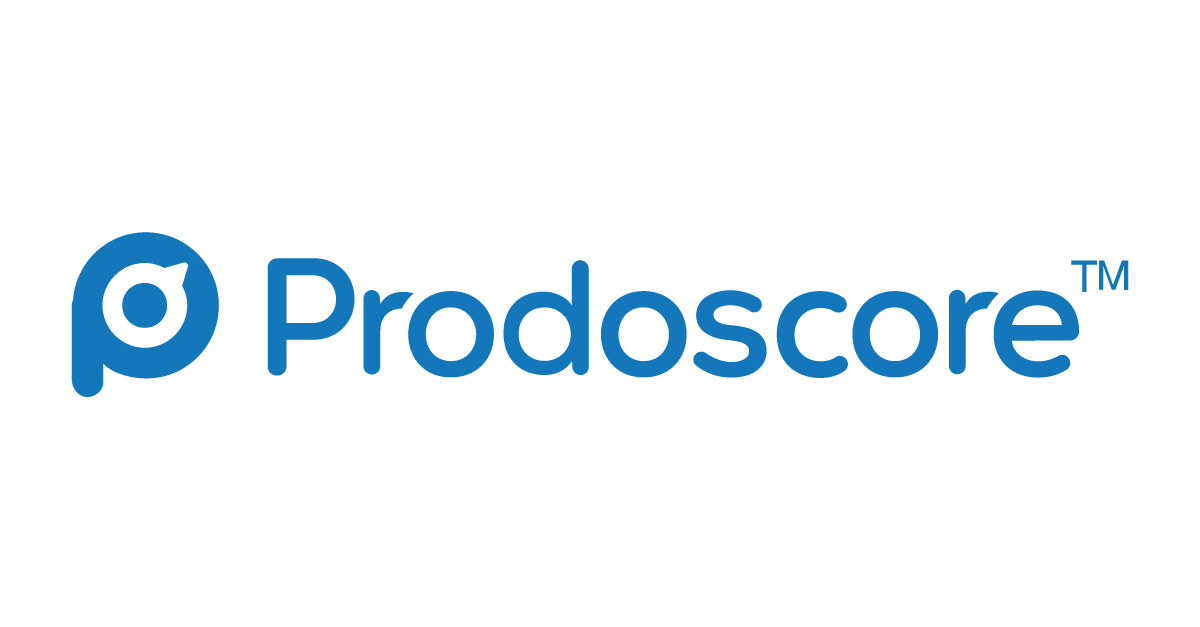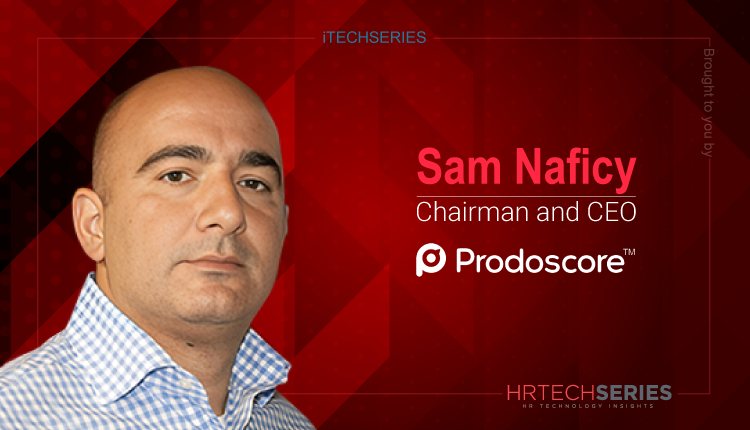Sam Naficy, Chairman and CEO of Prodoscore catches up with us at HRTech Series to share a few thoughts on how HRtech adopters and innovators can be more strategic about platform integrations:
__________
Hi Sam, tell us about your role at Prodoscore…
I have been involved with Prodoscore from the very beginning, initially serving as a board member before stepping into the role of CEO. As a serial entrepreneur with a strong passion for disruptive technology, I’m driven by transforming industries through innovation.
Prior to Prodoscore, I was the Chairman and CEO of DTiQ (formerly DTT), where I led it to acquisition by Cisco and it later became a leading provider of digital business innovation solutions and software for restaurants, convenience stores, and retailers.
We’d love to hear about some of Prodoscore’s recent innovations and how the tool is enabling end users?
We recently completed integrations with three technologies that cater specifically to the staffing industry, TrackerRMS, Ringover and Avionté. Our integration with TrackerRMS combines their industry-leading CRM and applicant tracking capabilities with Prodoscore’s advanced workforce intelligence, empowering staffing and recruiting leaders with a holistic view of their workforce. Similarly, Prodoscore’s AviontéBOLD certification signifies a seamless integration with Avionté’s comprehensive staffing suite. Lastly, the partnership with Ringover, a top provider of cloud-based engagement and enablement solutions, represents the two companies’ shared mission of reimagining how staffing firms operate and achieve success.
Two of our newest offerings include a Retention Risk report and advanced Organizational Network Analysis (ONA) capabilities. The insights surfaced from these tools are proving to be incredibly valuable in addressing several challenges currently facing staffing leaders including burnout, mental health concerns and economic uncertainty. The Retention Risk report helps organizations pinpoint employees who may be disengaging from the business for any number of reasons, and step in before it’s too late. The ONA tool provides a wealth of insight into how employees collaborate – are managers engaged with their team members? Is one employee acting as a bridge between teams or within a team? Are there communication silos? Consider the impact of losing an employee who is a critical connector and resource within your organization.
In May, we published a proprietary report detailing employee and executive roles at seven companies and found 12% of high productivity workers use AI in their workday vs 0% of low productivity workers. Additional data also revealed trends in manager-employee communication, including an average communication gap of 3-4 days and a recommended 6:1 employee-to-manager ratio for maintaining consistent communications.
Our product, ProdoLabs enhances the metrics that Prodoscore surfaces including insight into employee-manager communication, cloud tool usage and productivity by work location to name a few. ProdoLabs is a think-tank for new ideas, giving Prodoscosre customers tailored visibility into employee contributions to directly impact business decisions. This year, we’ve added multiple new features to the core product based on learnings from ProdoLabs including Patterns and Comparisons. Patterns reveal employee work patterns over time, showing the most and least productive days and changes in tool usage, for instance. The Comparison feature allows customers to compare employee work habits and patterns as it relates to things like meetings, cloud tool usage and hours worked.
Tell us about your recent integration with TrackerRMS.
The Prodoscore x TrackerRMS integration is a game changer for staffing and recruiting firms. We now help these firms gain insights into individual and team performance and address gaps in technology adoption by analyzing real-time usage data. Measuring optimization is not just about tracking time spent on tasks; it’s about understanding how work is being done and how it aligns with your business goals. With this integration, staffing firms can achieve a more comprehensive view of their operations, driving better decision-making and enhancing productivity.
Firms will be able to understand how their employees interact with technology and each other to uncover organizational pain points. As a result, leaders will be able to make better informed decisions about workforce optimization, process improvement, and resource allocation.
Read More: Breaking the Silence: How to Combat the “Quiet Vacationing” Trend
What type of insights and data do staffing firms need more of that modern HRTech doesn’t provide easily?
Generally speaking, to effectively navigate the staffing landscape, leaders need to adopt a strategic approach that blends technological innovation with human insight. This includes balancing automation with personalization, fostering a culture of continuous learning, implementing ethical AI use, prioritizing data security, leveraging data to drive strategic decisions, and aligning technology with business goals.
Staffing firms can benefit tremendously from using predictive analytics to gain insight into employee internal collaboration, daily work habits, and cloud tool usage. This allows managers to identify when an employee starts to “veer off course” and answer questions like, Are they being less collaborative? Spending less time in meetings? Decreasing cloud tool usage? These are all signs of disengagement, and our data shows that six to nine weeks before attriting, employees typically start to disengage from the business.
When it comes to revenue targets, predictive analytics are also incredibly valuable because leading indicators offer insight into performance before month, quarter or year-end, which means changes can be made that will impact those results before it’s too late
It is clear that as we transition away from the traditional 9-5 work model, leaders need to find a way to promote accountability among remote and hybrid employees while safeguarding personal information. Our non-invasive monitoring system does exactly that – by monitoring business app activity without compromising personal privacy, leaders can foster mutual trust and collaboration for the success of the employees and company.
How can staffing and recruitment firms be more strategic in using HRtech, real time data, AI to power their processes?
In today’s business environment, leaders need to leverage data to be more effective and make proactive changes. Prodoscore’s holistic view of employee productivity enables proactive decision making within organizations. When managers and employees”quiet quit,” the impact on company morale and culture can be significant.
This underscores the rising demand among staffing and recruitment firms for predictive insights to forecast hiring needs, understand future demand trends, and prepare for potential market shifts. To effectively mitigate turnover, leaders must use productivity intelligence solutions like Prodoscore to identify disengagement before it affects the business.
While some advanced HRTech platforms offer predictive analytics, it’s not universally available and often lacks the industry-specific customization that staffing firms require.
Prodoscore’s groundbreaking data reveals that 15% of payroll dollars are at risk due to workforce inefficiencies. For a 150-employee company with an average $60,000 salary, this equates to $1.3 million in potential losses annually.
Can you share a few thoughts on the five biggest HR tech updates from around the world that have piqued your interest and why?
Here are some of the HR tech updates I’m finding most intriguing:
- The continued rise of AI and machine learning in HR: I think this one is self explanatory – AI is all the rage – but the implications are endless. From automating repetitive tasks to screening resumes to identifying top talent to providing personalized learning and development to improving employee engagement…there’s a lot to be excited about.
- The increasing focus on skills-based hiring and development: Staffing companies are moving away from traditional degree-based hiring and instead focusing on the skills that candidates possess. This is being facilitated by the use of AI-powered skills assessment tools and the rise of online learning platforms, which I think will be an innovative change for the industry overall.
- The rise of employee well-being and mental health technologies: We’re seeing much greater focus on employee well-being and mental health and a lot of new technologies to support those areas, including mental health apps, wearable devices that track stress levels, virtual therapy platforms, etc. I am excited by the focus on people and how this could improve well-being and ultimately performance.
- The increasing use of data and analytics in HR: HR departments are using data and analytics to gain insights into their workforce and make better decisions about talent management, recruitment, and employee engagement. Prodoscore is a great example of a solution that’s collecting and analyzing data from disparate sources and surfacing actionable insights.
Read More : HRTech Interview with Louise Willoughby, Chief People Officer at Beekeeper
[To share your insights with us, please write to psen@itechseries.com ]
Sam is by nature a serial entrepreneur and has founded numerous companies in a variety of industries. He has raised over $300m of Debt & Equity and has 25+ years of SaaS experience at senior executive levels in business sectors including but not limited to: pharmaceuticals, retail/distribution, quick service restaurant development, and technology. Prior to joining Prodoscore, Sam was Chairman and CEO of DTiQ, a company he founded in 1998. Today, DtiQ is the world’s leading provider of intelligent video-based surveillance and loss prevention services with over 65,000 customers and $50M in ARR. (Dtiq.com) Early in his career, Naficy founded Daru Nardin, a pharmaceutical brokerage firm specializing in the Middle East. During its first 18 months Daru Nardin attained the exclusive distribution rights to Merck Sharpe & Dohme (MSD — Merck) and Faulding Pharmaceuticals (one of Australia’s largest pharmaceutical companies) for sales into Iran. Naficy later established The NORG Group which entered into Joint Venture agreements with the 99 Cents Only Corporation (a publicly traded company on the NYSE–NDN). NORG established joint venture partners for the 99 Cents Only Corporation in China, Guatemala and Mexico. Those relationships continue to this day; however, NORG is no longer involved. He is also involved with nonprofits dedicated to under-privileged children and is a former board member of the Los Angeles Boys and Girls Club. He is active in charitable organizations with significant contributions to Pancreatic Cancer Action Network, The National Kidney Foundation, St. Jude’s Children’s Hospital, Juniors of Social Service, and Northridge Hospital to name a few. Sam is a frequent investor in SAAS/Technology enabled software businesses and is an active member of the Young Presidents Organization (YPO) Los Angeles, formerly serving as its Chapter Chair. In June of 2013, Sam Naficy was named Ernst & Young’s Entrepreneur of the Year for Greater Los Angeles. Prodoscore is an AI-powered and employee-centric data intelligence solution dedicated to making teams more successful.
Prodoscore is an AI-powered and employee-centric data intelligence solution dedicated to making teams more successful.

